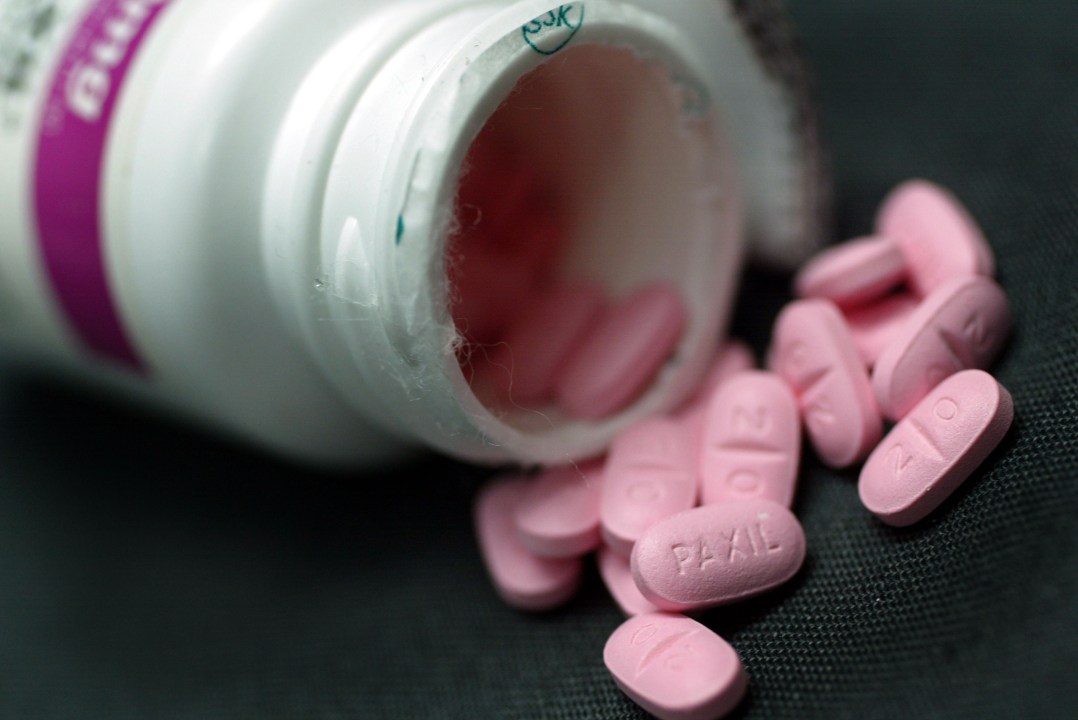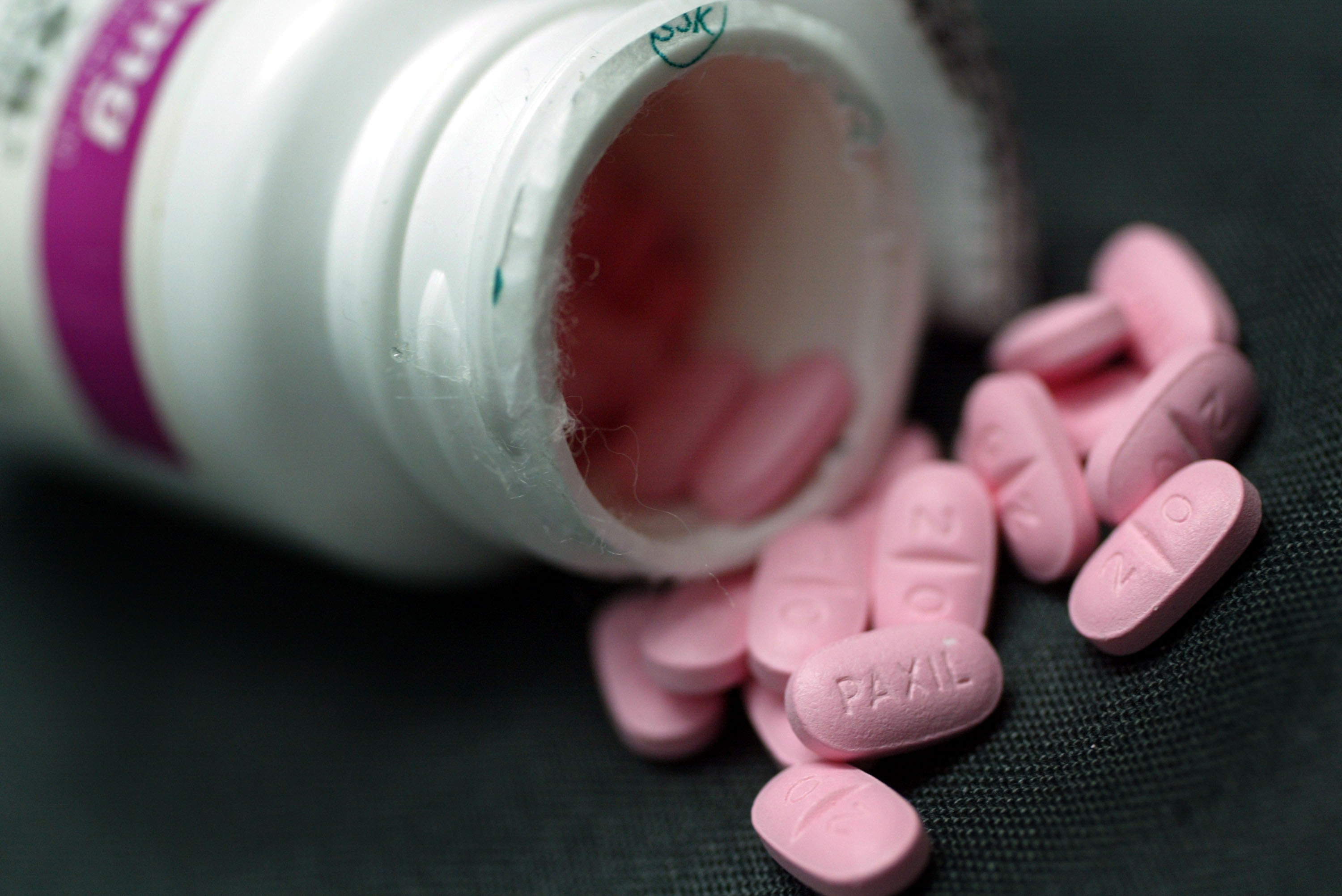Britain is turning sadness into sickness. More than four in five GPs believe that the ups and downs of normal life are being wrongly redefined by society as mental disorders. The news, from the Centre for Social Justice’s (CSJ) report Change the Prescription, follows comments from Tony Blair, who said: ‘You’ve got to be careful of encouraging people to think they’ve got some sort of condition other than simply confronting the challenges of life.’
It seems reasonable to ask why GPs continue to prescribe pills that the vast majority of their profession consider to be inappropriate
The findings in the CSJ’s report show that:
- Some 84 per cent of GPs believe everyday challenges of life should not be seen as mental health problems.
- A similar 83 per cent of GPs are concerned that antidepressants are too easily prescribed to patients when non-pharmaceutical interventions are more suitable.
- The public agree with GPs, with 65 per cent agreeing that the NHS should prioritise addressing the root causes of mental health problems through therapy and social prescribing.
- Just 12 per cent of the public think drug-based approaches should be prioritised.
The CSJ used polling company Savanta to survey 1,001 GPs in December. The doctors’ views suggest that the explosion in antidepressants being dished out indicates that many are going to people who, until a few years ago, we’d consider to only be feeling a bit blue.
The report points out that, in England alone, nearly a fifth of the adult population is now on antidepressants. Separate analysis by The Spectator’s data hub reveals, for the first time, that nearly 11 million people are prescribed antidepressants in the UK – a 10 per cent increase in the past five years.
It’s fair to ask why GPs are still prescribing strong medication when they question whether their patients really need to be medicalised or if there is a better, less intrusive alternative. The answer: it isn’t so simple. Talking therapies for example are in short supply, with some trusts only offering six sessions and then requiring a six month cool-off period before more sessions can be prescribed.
But this isn’t just about overprescription. Concerningly, the NHS doesn’t even seem to have a coherent definition for mental health at all. The report found that of 49 health trusts in England only three had a stated definition. Psychiatrists, too, bemoan the subjective nature of mental health diagnoses. The CSJ say:
In a desire to support and enable individuals to have positive mental health, there is a danger that the pendulum has swung too far, and that the boundaries between distress and disorder have become blurred.
This is not compassionate. It risks those who are unwell missing out on the treatment they deserve, and it risks burdening others with unhelpful labels that can hold them back without addressing the root cause of their very real needs.
There has also been an alarming rise in mental health problems among children, with a fifth of eight- to 16-year-olds experiencing a probable mental health disorder – up 125 per cent. A previous CSJ report forecast that this could hit one in four children by the end of the decade. But these children, too, could be overdiagnosed. One 17-year-old boy blames the rise of TikTok sickfluencers: ‘I think there’s a complete miseducation through TikTok. You scroll and you see ten signs you’ve got ADHD… and then people self-diagnose.’
These self-diagnoses, pushed through social media algorithms to the inherently anxious young, are not helped by less-than-scrupulous financial companies. The standard questionnaire for diagnosing ADHD – and many other mental health conditions – is freely available on the internet, and I’m told that whilst doctors have rigorous methods to draw out the answers from patients in a impartial way, there are an increasing number of private companies who simply read out the questionnaire questions.
There is a growing financial cost to all this too. Economic inactivity – the term economists use to describe those who are not in work nor looking for it – rose by nearly 30 per cent for 16- to 24-year-olds and by 42 per cent in the four years to 2022. When the age groups are combined there was a 24 per cent increase in those described as long-term sick due to mental ill-health. Economic inactivity due to mental ill-health is estimated to have cost England nearly £100 billion in 2022 alone.
Meanwhile, data from the Department for Work and Pensions (DWP) shows that long-term disability benefit awards for anxiety and depression have exploded since lockdown and Covid in England and Wales. Before the pandemic, the monthly new awards for mental health disability benefits had been gradually falling and sat at an average of 2,080 per month. Since then they’ve nearly tripled and stood at 5,850 per month on average over the year to October (the most recent figures). That means nearly 280 people a day are being granted benefits for what the majority of family doctors consider to be the ups and downs of normal life.
Another staggering figure unearthed by The Spectator’s data hub from DWP stats shows that over the past five years ‘mental and behavioural’ conditions are recorded in 85 per cent of incapacity benefit claims where work capability is assessed and information on conditions is available (the figure is 69 per cent for all decisions). This dwarfs the next most common recorded condition group which is musculoskeletal, such as back pain.
Perhaps most worrying is the mounting evidence that once someone begins treatment for depression they start on a path that’s difficult to get off. More CSJ analysis of NHS England finds that half of those issued a fit note (to say they don’t have to work) for mental ill-health received it for the long term, which the report says ‘may not serve as the most effective treatment option’. Quite.
It’s even worse for those who end up in the benefit system. A recent House of Lords Economic Affairs Committee report found that the DWP stopped moving claimants off sickness benefit after reassessments and hasn’t started that process again. They quote the Office for Budget Responsibility who found there were only 3,000 reassessments resulting in the claimant coming off benefits in 2022/23 compared with 28,000 in 2019/20. So a growing number of Britons are ending up on long term disability benefits due to poor mental health with no prospect of returning to normal life.
So what should be done? A separate poll of 2,050 adults as part of the CSJ’s report finds that nearly half of the general public want to see less severe mental health problems supported through a ‘benefits-in-kind’ programme where non-drug-based treatments and services are prescribed. But it also seems reasonable to ask why GPs continue to prescribe pills that the vast majority of their profession consider to be inappropriate.
This explosion of prescriptions and benefits is not just a human tragedy but an economic one. Britain is turning sadness into sickness, trapping people in a system that medicalises ordinary life. Antidepressants can’t mend broken hearts, make monotonous work fulfilling or replace friendship. Unless ministers and doctors tackle the root causes – loneliness, poor therapy provision, and overdiagnosis – we’ll be left with a nation hooked on pills and cheques, paying the price in every sense.








Comments